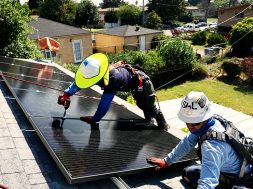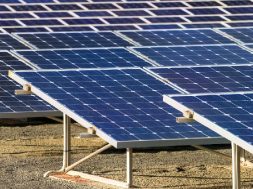
Kerala campuses do their bit for nature by going solar
Recently, Sree Sankaracharya University of Sanskrit, Kochi, announced that the campus is going solar! It will now tap into its solar energy for power requirements. And they are not the only ones. Several colleges in Kerala have been leading the way in doing their bit for the environment! Kochi Times talks to some of the front-runners in the cause like College of Engineering, Trivandrum, Mar Athanasius College for Advanced Studies (MACFAST), Tiruvalla, Amrita Viswa Vidyapeeth, Kollam and Kerala University, Kariyavattom — all of whom have taken the first step in solar power generation.
Less power bills, no power cuts!
At a time when campuses can’t do without gadgets ranging from computers to home theatres, increasing power bills are a major concern. K T Raveendran, Registrar of Sree Sankaracharya University of Sanskrit, says, “As compared to the past, colleges spend a lot more on electricity bills today, with more of computers and other gadgets in use constantly. In our college, the idea to go solar was mooted by the faculty. Our plant is expected to mitigate the varsity’s electricity expenses by nearly a lakh, per month.” The students too feel that going solar is a necessity, at a time when the climate is hot and power cuts are aplenty. Alfy John, a Sanskrit University student, says, “The new plant has given us a breather from the incessant power cuts here. In Kalady, where our universtiy is located, is usually quite hot and it becomes really difficult when there is no power. All that would be a thing of the past, from now.”
Students of MACFAST, the first college in Kerala to tread the solar route, says, “There are more hostel students than day scholars and so students spend more time on campus. It was important for the campus to have a reliable yet economical source of power.” Arathy Robert, MBA student, says, “Unlike other hostels and campuses, our college lets us use devices like electric irons, thanks to the solar power generation. It feels like home when there are less power restrictions.” Principal Fr Pradeep Vazhatharamalayil, who helmed the project in the year 2011, agrees, “Solar power generation is a bit expensive in the initial phase of installation; however, it is quite economical in the long run and it proved to be a good decision.”
Environmental Concerns
Dr Dilip KG, faculty of the Sree Sankaracharya University of Sanskrit, observes, “High energy consumption has been an environmental issue and solar power will help generate energy in a sustainable way. Educational institutions should show the way forward to generate green energy. Other institutions and individual households should also follow this model to find alternate methods of energy consumption.” For Alana Joseph of MACFAST, who has studied abroad, watching her campus tapping into solar energy was a new learning. “I am planning to use solar panel installation in my parents’ farm here in Kerala. It’s my campus that planted this idea in my head. Since I discovered it, I promote the usage of solar power, whenever possible.”
Alongside gaining monetary returns, colleges are also careful about not wasting the excess energy they produce. Dr Francis Fernandez, faculty of CET, says, “It is during weekends that there is a surplus amount of energy, as the classes are not conducted then. The electricity produced is then fed back to the power grids.” Dr N Veeramanikandhan, Kerala University Pro Vice Chancellor, says, “We too feed the extra power produced during the weekend into the grid and save about ` 80,000 per month through this initiative. In addition to saving money, the project is just the first phase of our nature conservation initiatives. We are also all set to launch a rain water harvesting project, alongside this.”















